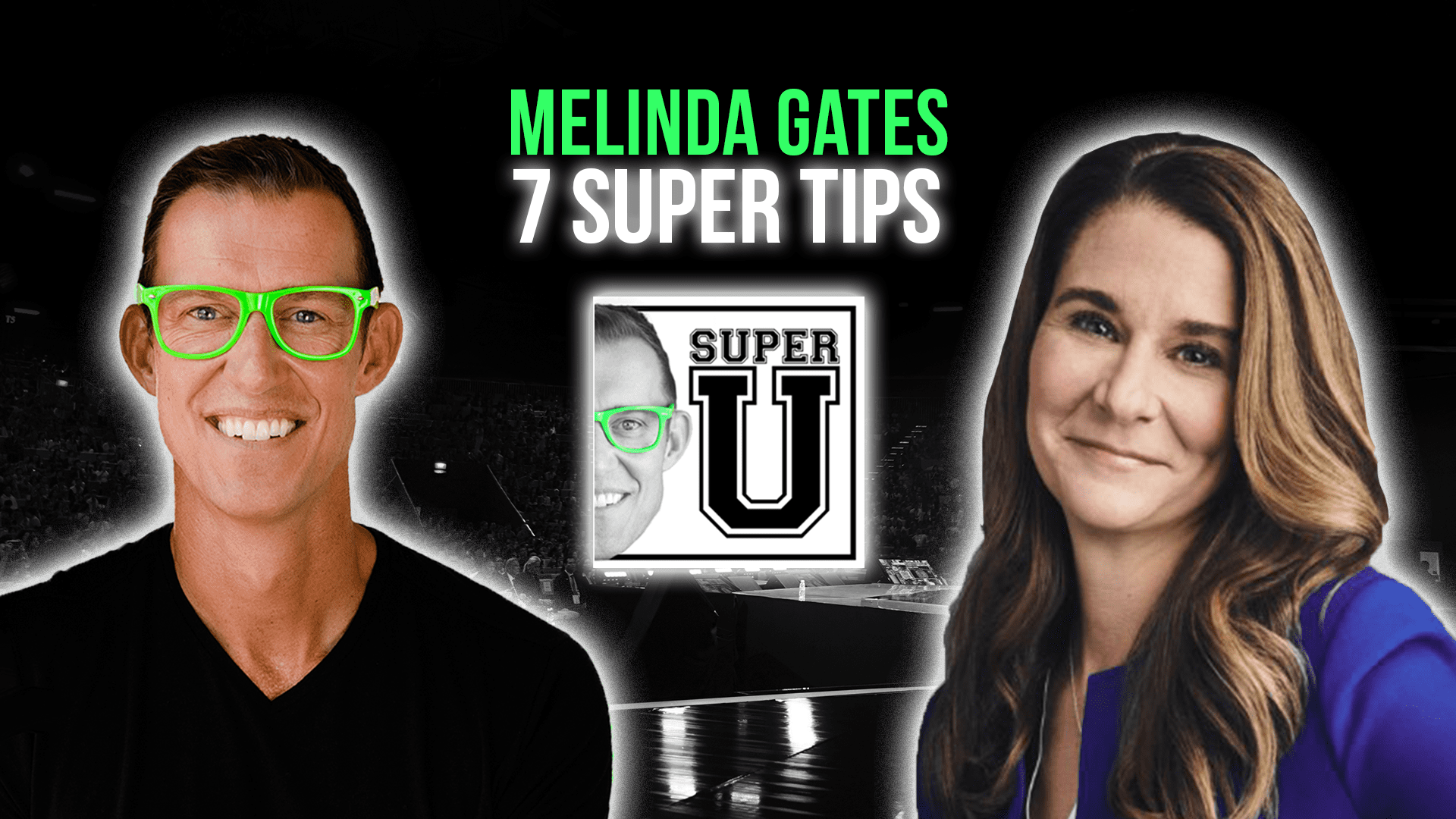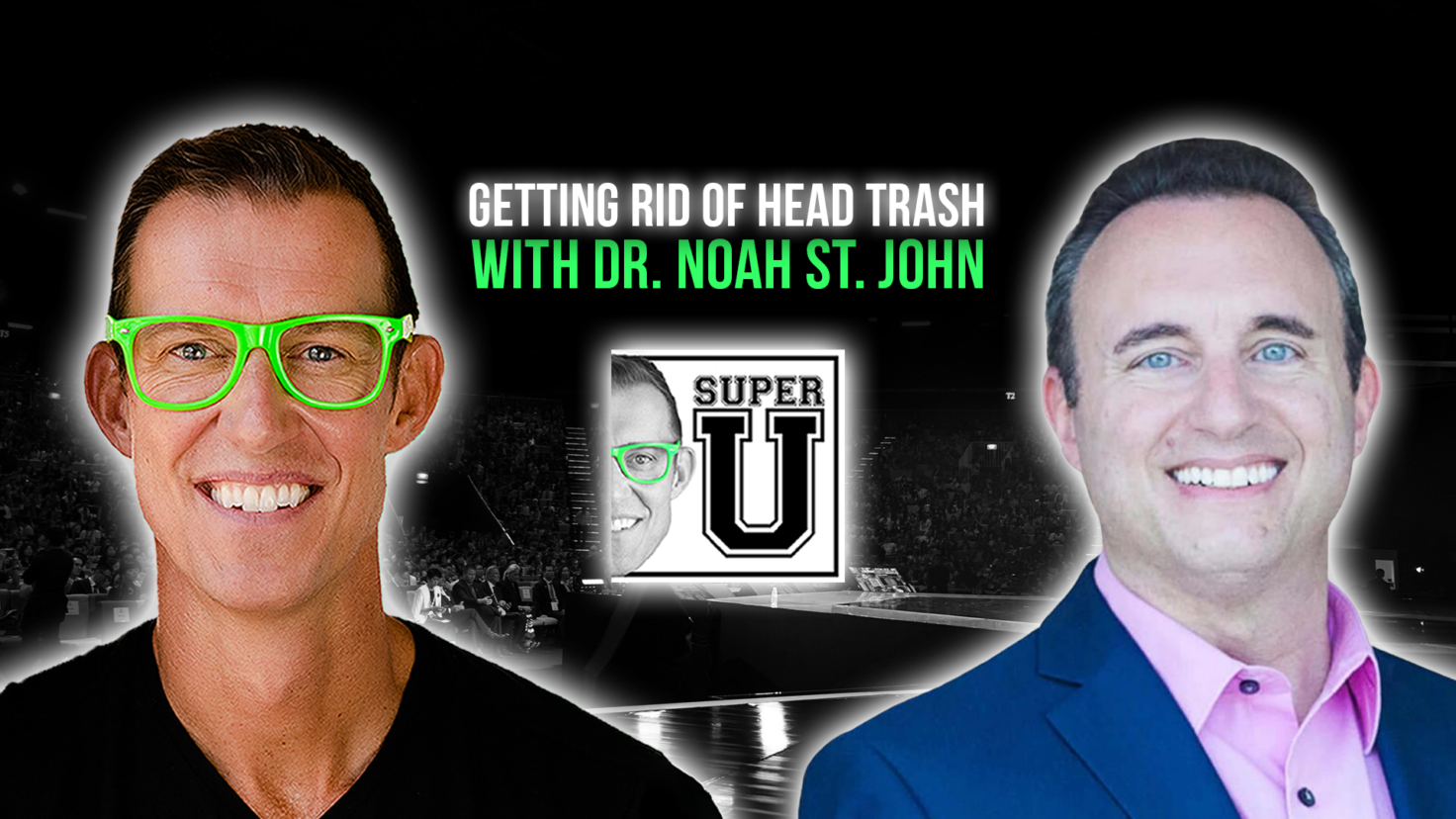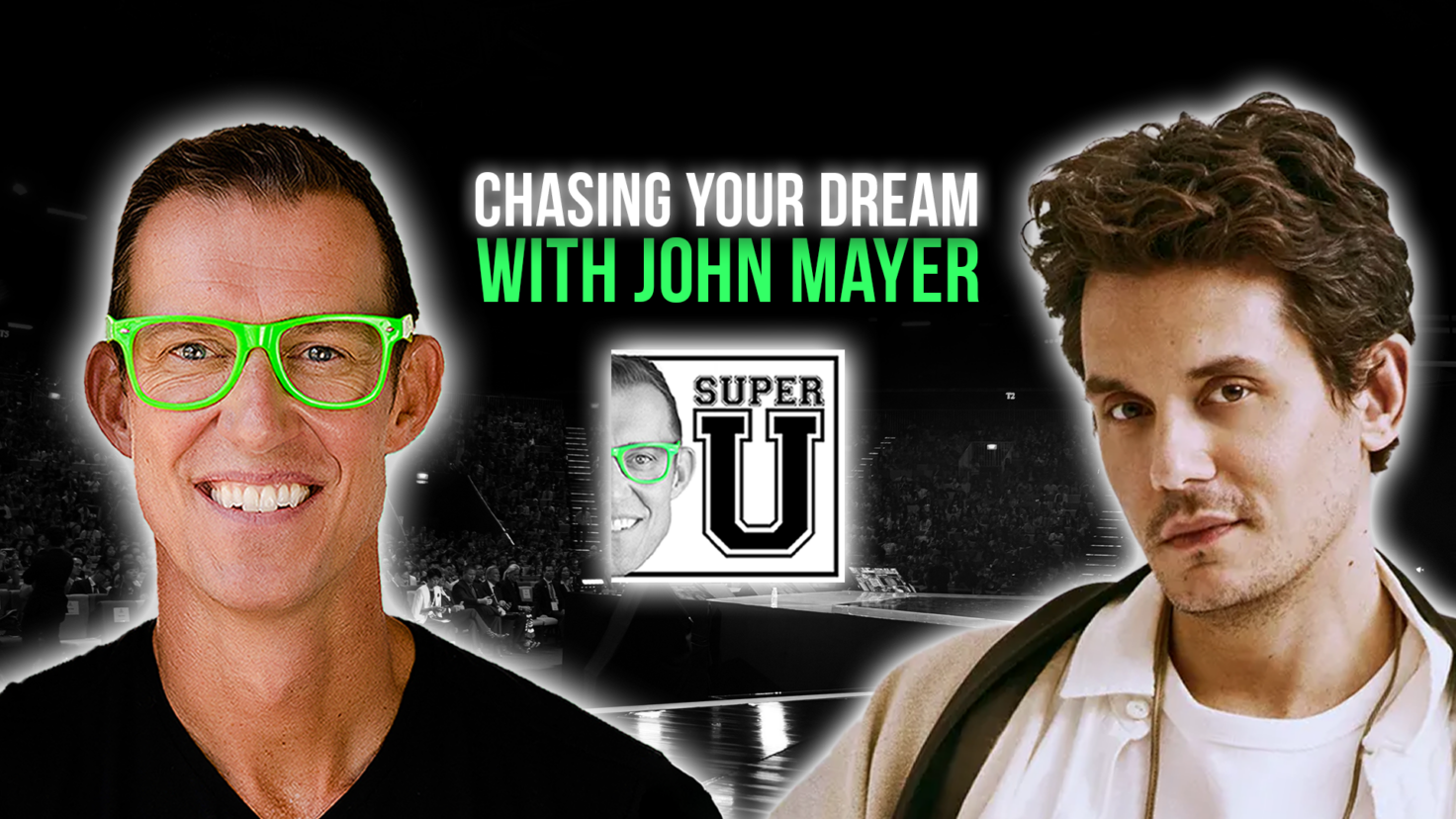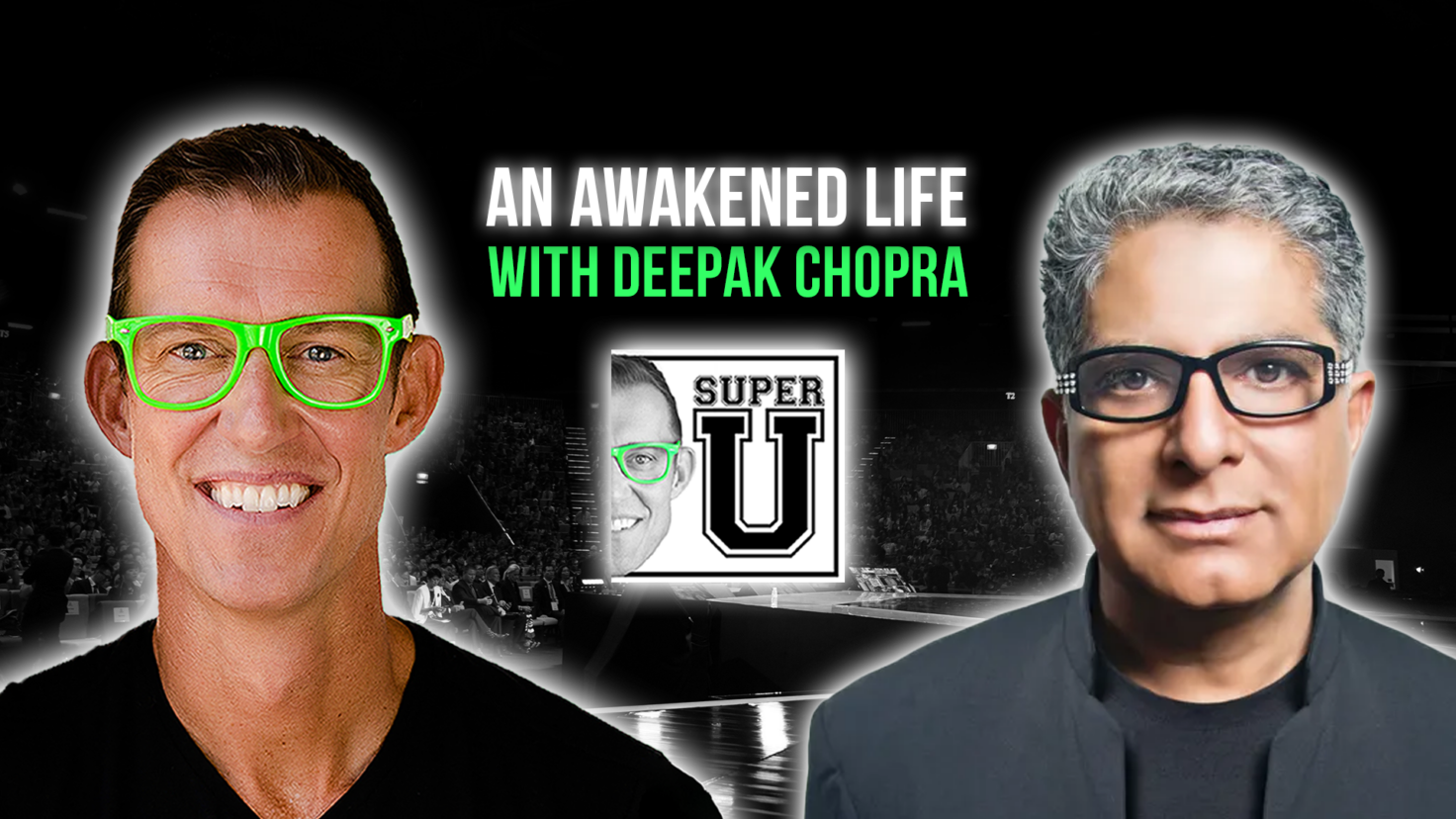Super U Podcast | Melinda Gates
On this episode of the Super U Podcast, Melinda Gates, former general manager at Microsoft, co-founder of the Bill & Melinda Gates Foundation, and billionaire gives us insight into difficulties in her marriage with Bill Gates, how she got her start, and why she believes empathic leadership is so important. Click here to subscribe to the Super U Podcast. Need a sneak peek? Below are the main takeaways from the episode.
Super U Podcast | 7 Super Tips with Melinda Gates:
[6:30] There Are Many Paths to Success
“My mother did not go to college, her parents didn’t believe in her going to college. So they put her in the workforce right after high school, she always wished she’d gotten a college degree. So when I was growing up, it was deeply embedded in my three siblings and me that we were going to college. And my parents, that was not going to be easy on an engineer’s salary to put four children through college. And they were determined that we could go anywhere in the country that we could get into and that they were going to pay for it. We weren’t going to go on financial aid or scholarships. So my parents set up a family business they bought and rented out properties and then would sell some of them as the market increased. As a young student in high school, I mowed lawns at these rental properties I painted. I cleaned up after people left. So I learned what it was like to work hard. But my parents also invested early in a computer, they bought one of the Apple Threes that were sold, there are only about 2000 of them ever sold. We owned one, they still own it, it’s in the closet somewhere. And my sister and I kept the books and we learned what was then the spreadsheeting program VisiCalc I learned that thing inside and out I could program the cells I got interested in computers, and I understood the flows of money. So my parents also put us in high school my sister and I there’s a big gap between two girls and then two boys, they put us in high school in Dallas, Texas, a Catholic High School, all-girls Catholic High School, wasn’t the best High School in the city. And that was a little bit frustrating to me. So I knew I had to work really hard at this high school to get noticed by any college. But along the way, I met a math teacher, she was getting her Ph.D. at night in computer science, single mom raising three boys. And she saw that I was good at math. And she said, “I’m going to make sure you always know you’re good at math.” And she helped guide my career through the hardest math subjects in high school. And my junior year of high school. She bought 10 computers, Apple twos she went to the head none of the school and said I’m want to get these Apple twos I want you to invest in them. She convinced the nun to invest in them. And we had 10 Apple 2’s. And what she led us girls do was to get out ahead of her in computer programming, she taught us what she knew. And she let us run wild. That then turned into a summer job for me where I was teaching kids both math tutoring them and how to program. And it led ultimately to a computer science degree at Duke and ultimately to a career at Microsoft. And I tell you that because when you get into computer science, for those of you who have done it and engineering, as you know, it’s a lot like a puzzle, except that there’s not often a closed-end solution. There might be somewhere you’re trying to go. But there are many possibilities to get there. And you have to have a lot of creativity and you got to go through a lot of frustration. You got to keep your curiosity up and you got to believe in yourself when you’re programming. And I went through college when there were very few women in computer science after freshman year, basically none. I programmed with guys all through Duke and I learned how to be good at managing teams. So when I got to Microsoft, I had to make sure that I remembered those skills when things were tough for me at Microsoft. I loved it there. I worked there for nine years. But when I would get unhappy a little bit because I would think, “Gosh, I have to be like somebody else I have to manage like that person, man.” That team, I had to realize no I had to go back to who I was in manage in my style from what I learned in college about forming teams and moving forward.”
[11:11] Being Vulnerable Helps Make Change
“The hardest pieces for me to write were the most private parts of the book, moments in our marriage where I was asking Bill for more equality, or moments where I do you talk about abuse that I went through, that was the hardest piece to write. But I felt like in being vulnerable, if I would share those stories, people would understand, you know, abuse, it can happen to absolutely anyone. And I traveled the globe. And when I stay long enough in places, it comes out whether I’m in Silicon Valley, whether I’m in northern India, whether I’m in Senegal, or Malawi, women talk to you about abuse. And one of the reasons it’s important to write about that is because it silences women, it silenced my voice, it took away my self-confidence for years. And I wanted to know for women, that we have to share our stories, and it’s in that sharing that we can actually change society.”
[12:50] Go Back to Your Values
“…probably comes from the fact that I grew up in a very middle-class family in Dallas, Texas. And we were working very hard to have enough money to send the four of us kids to college. And we knew my dad’s engineer salary wasn’t going to pay for all of it. And so they had a property real estate business. And we were cleaning ovens and cleaning out people’s messes. When they leftover and running the finances, I kept the books. And I think growing up in that sort of middle-class family with this dream of going to college, you remember how important it is to get a great education like my parents were determined I would get a good education. But it set my values. I mean, that and my parents sent me to an all-girls Catholic High School, I kind of wanted to go to a different all-girls school that was more academic, but that that social justice grounding I got in high school. It just helped me really wrestle with my values early. And then I would say Lastly, having three children, you constantly have to be thinking, What am I teaching my children that I want them to live out in the world? And am I living my life that way? By what I say? And I do and so it always goes back to your values. And so I just don’t see myself as any different than anybody else. I’m this young girl who grew up in a middle-class family in Dallas, Texas.”
[15:23] It Goes Both Ways
“I think it really depends on what the culture of the company is that you work for. And I think that if you find yourself under a boss who’s not supportive, you know, as fast as you can move under somebody else, I think the better off you’re probably going to be unless you can work with them. I also know other women who’ve talked to me who work at companies, now young women who are in the early 30s, who say, “Okay, I haven’t had the most supportive boss and the environment I’m in.” But if my colleagues and I get together, and not just a group of women, but men and women to give that person feedback, and if they’re open, and they hear it from multiples of us, then sometimes they’ll start to change. So I think, honestly, I think the burden is both on the corporation to change or if it’s government to change, and on the individual to say what’s right for me, and what is it that I want, but it goes, it goes both ways.”
[16:29] Empathic Leadership
“I talk about empathic leadership, and I believe in being compassionate to everybody around you. So whether you talk about love explicitly or not, I think it’s what you do to role model. So when you have the employee who has a death in their family or has a loved one, a mother or father who’s ill, or a young child they’re caring for, I think it’s how you respond to them as a manager, or in reverse, that shows your humanity and people are basically, I think, looking, I think the best organizations are ones where people can show up as their full selves at home and at work, and that they don’t have to hide parts of themselves. Now, it doesn’t mean if you’re going through something emotional at home, you want to bring all of that to work, you do have to manage your own emotions. But I think the more we let everybody be themselves, the more we will have empathic leadership. And to me that ultimately is when you reach out and connect with somebody over their humanity that ultimately is love whether you name it or not.”
[18:50] Melinda Gates on Charity
“I met Mina in northern India, and she had just given birth to a beautiful little baby boy in a health facility that we had been part of supporting. And so I was in Mina’s home, as she and her husband and her two little boys and she had this beautiful infant in her arms. And we were talking about her experience, which had been very positive. And we’d gone through all of that. And then, so near the end, I said to her, so what are your hopes and dreams for your sons? And she just looked down for a long time. And she went very solid after we had this glorious conversation. And then she finally looked at me and she said, “The truth is, I have no hope for my son, none.” And she said, “My only hope would be is if you took them home with you.” And all she knew was you know, I’m there as a Western woman and a pair of khaki pants and a T-shirt and she just knows that life will be better for her son. And she ended up saying take both of them. She thought their lives would be better if I took them back to the United States and it’s heartbreaking to be in these situations and to see parents who are doing their absolute best, but because of their circumstances, can’t feed and educate their kids. And I think that’s something we can do something about as a world and we should do something about it.”
[20:40] Lift Up Others
“It was the last year of my MBA program and I had had summer internships for IBM, they made me a job offer. And I said, “Look, I’m going to look at other places, and then I’ll come let you know, late spring of my MBA year, whether I’m going to take this job.” And so I turned out all my other offers, but I still had this callback from Microsoft to go do so I came home on spring break, went through Dallas, which is where my hiring manager was, I grew up in Dallas, and she said, “Are you ready to accept the offer with IBM?” And I said, “Actually, I’m just one more company, little company, Microsoft, they have just gone public in Seattle.” And she said, “Do you want a piece of advice?” And I said, “Sure.” And she said, “Well if they make you a job offer, you should take it.” And she floored me, this is my hiring manager. And I said, “Why?” And she said, “Well, because your chance as a woman to advance would be meteoric.” And so it sticks in my mind because we women have to be for other women, right? I mean, I see these young men graduating from college or going out in the community. And there are just these built-in networks that lift them up and take them off and offer them jobs. And so how do we open our networks? And how do we be for everyone else? That was a fabulous piece of advice. And then I went to Microsoft, when I interviewed the salary they offered me was so much lower than the rest of the MBA school. And I said, “Look, I don’t care. I love what this company is doing.”
Connect with Melinda Gates:
Website: https://www.gatesfoundation.org/
Instagram: @melindafrenchgates
Twitter: @melindagates
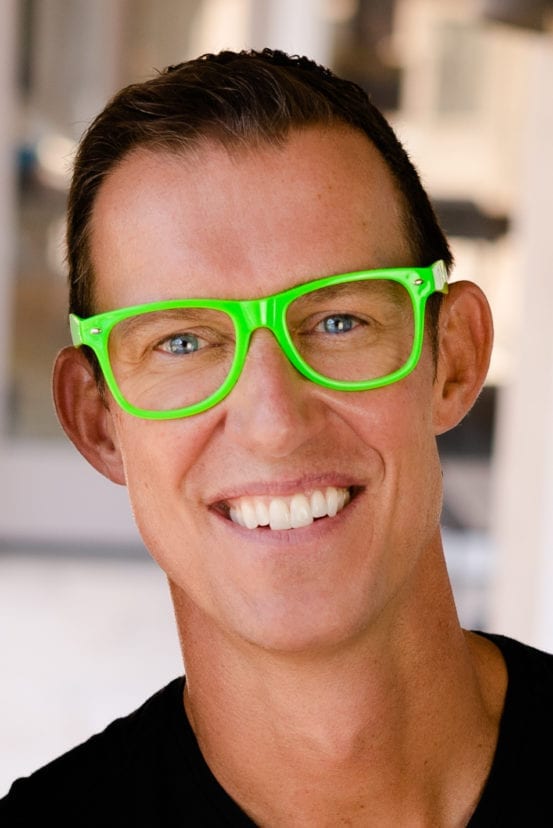
To ensure you don’t miss future episodes, subscribe to our podcast by clicking here >> Super U Podcast. We hope these tips help unlock and unleash your inner superpower!
The Super U Podcast is hosted by #1 bestselling author and Motivational Speaker Erik Qualman.

